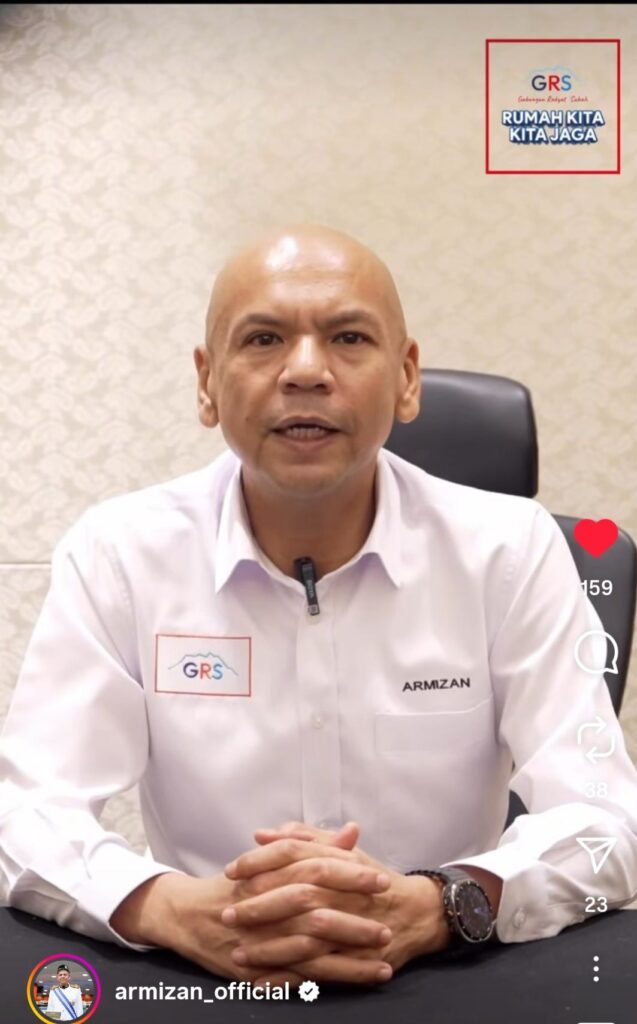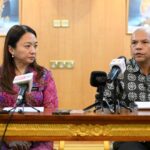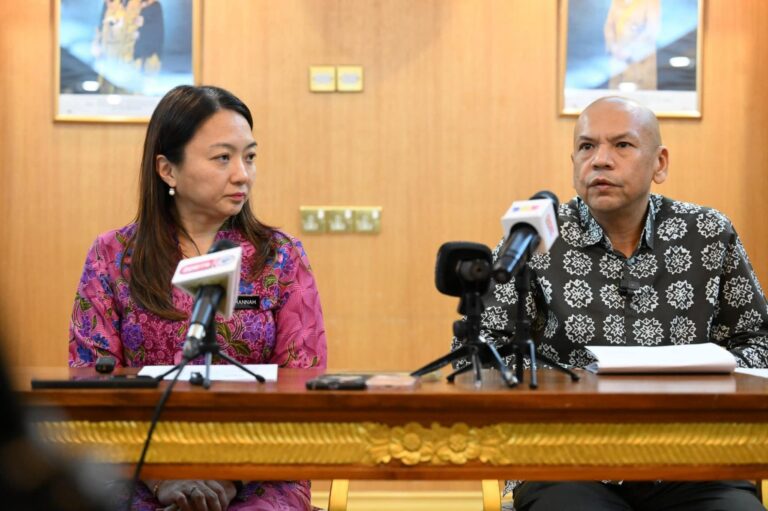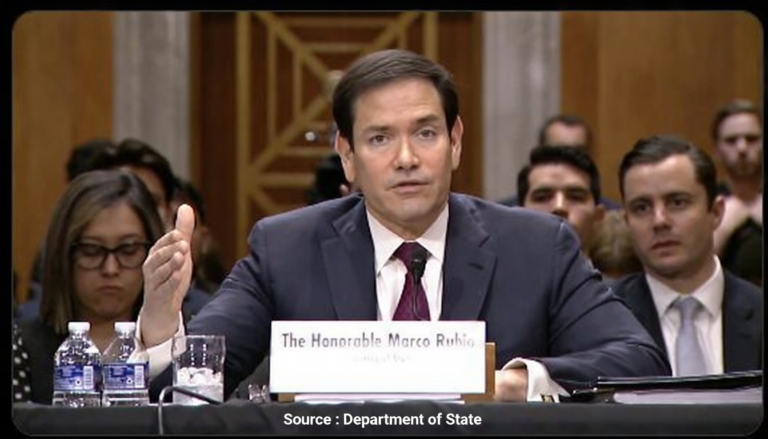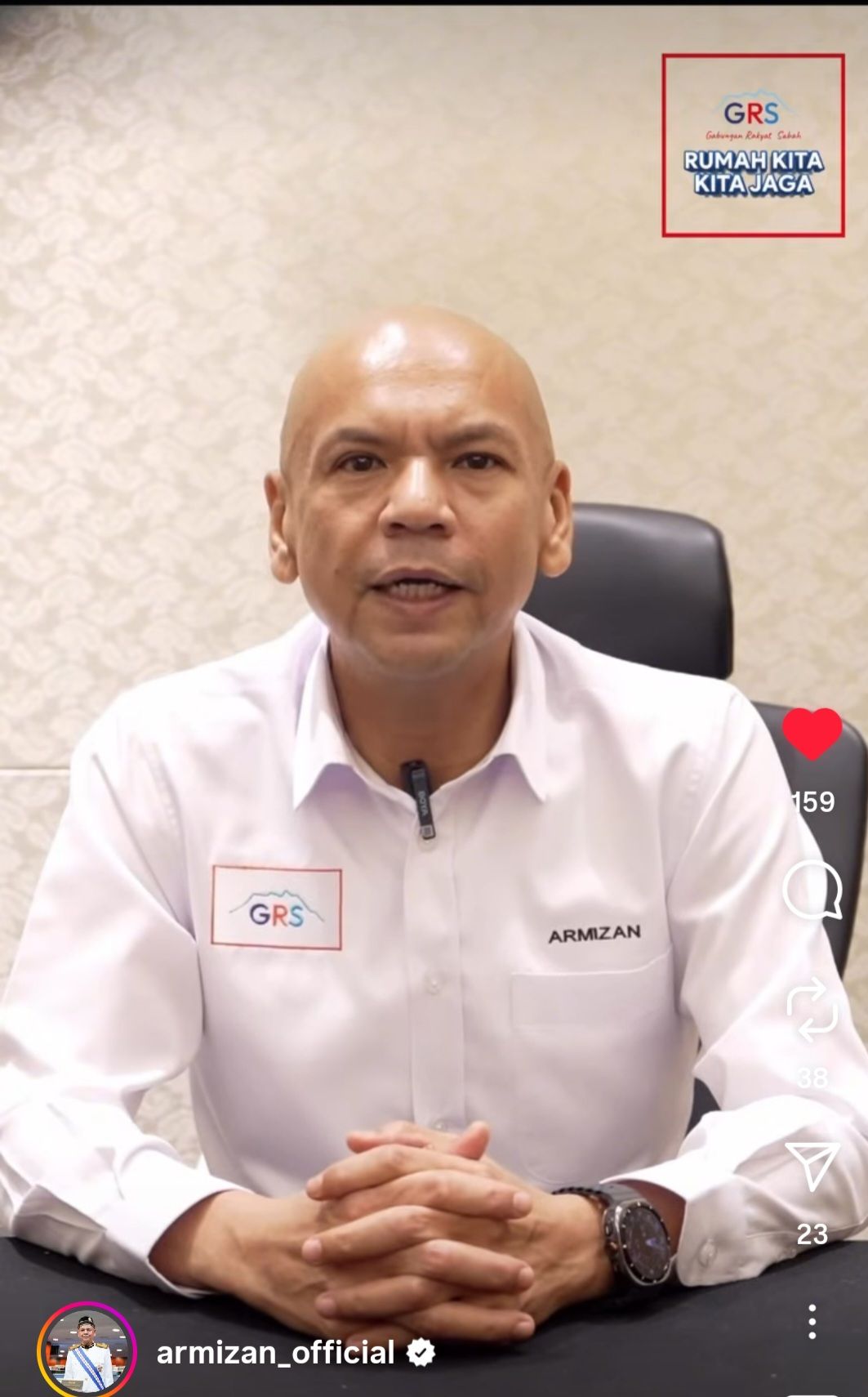
SABAH, MALAYSIA, Oct. 22, 2025 – In a pointed social media critique amid escalating pre-election tensions, Gabungan Rakyat Sabah (GRS) leader Datuk Armizan Mohd Ali accused opposition figure Datuk Seri Shafie Apdal of hypocrisy over Sabah’s maritime boundary protections, contrasting fiery recent rhetoric with alleged silence during a controversial 2012 federal law.
In an Instagram reel posted by @armizan_official, which has garnered significant engagement, Armizan highlighted what he called a stark “rhetoric vs. track record” divide. The video, featuring clips of parliamentary debates and archival footage, levels criticism at Shafie, president of Parti Warisan Sabah, for building a narrative that the GRS-led state government has failed to safeguard Sabah’s natural resources, including oil and gas rights—claims Armizan dismissed as unsubstantiated.
“Election season brings out their so-called fierce defense of state interests,” Armizan stated in the caption, translated from Malay. He pointed to Shafie’s vocal intervention on July 22, 2025, in the Dewan Rakyat, where the former chief minister demanded that any alterations to state boundaries require approval from the Sabah State Legislative Assembly, invoking Article 2 of the Federal Constitution. “Impressive and spot on,” Armizan conceded, before pivoting to irony.
The post questions Shafie’s whereabouts in 2012, when—as a federal parliamentarian and senior cabinet minister—he purportedly failed to challenge the Territorial Sea Bill. Enacted as the Territorial Sea Act 2012 on June 22, the law redefined Sabah’s maritime jurisdiction to just three nautical miles from the coast, overriding boundaries set in the 1954 North Borneo (Alteration of Boundaries) Order in Council.
“Did he raise his voice in Parliament or Cabinet meetings back then?” Armizan asked, framing the omission as a betrayal. In contrast, he praised the current GRS administration under Chief Minister Datuk Seri Hajiji Noor for unequivocally rejecting the 2012 Act in the state assembly, vowing to defend Sabah’s original entitlements.
“Who has proven resolute? Who has failed? Words don’t match deeds,” Armizan declared, urging voters to scrutinize actions over speeches.
To underscore GRS’s credentials, Armizan cited a recent victory: With backing from GRS-Pakatan Harapan allies in Sabah and Gabungan Parti Sarawak (GPS) in Sarawak, the federal government amended the Carbon Capture, Utilisation and Storage (CCUS) Act 2025 to exclude Sabah and Sarawak, limiting its scope to Peninsular Malaysia and Labuan. The measure, passed in Parliament this year, preserves state autonomy over subsurface resources.
The reel, viewed thousands of times since its release, amplifies broader anxieties in Sabah over federal encroachments on state rights, a perennial flashpoint in Borneo’s politics. Warisan has yet to respond publicly, but the party has long positioned itself as a bulwark against perceived Kuala Lumpur overreach.
As Sabah gears up for potential snap polls, such exchanges signal intensifying rivalries, with resource sovereignty at the forefront. Political analysts say the 2012 Act remains a sore point, fueling calls for constitutional amendments to restore pre-independence maritime limits.
